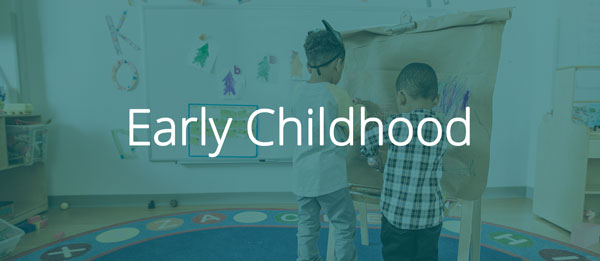Cross Sector Innovation in Early Childhood Research

Three years ago, the first cohort of Interdisciplinary Research Leaders (IRL) fellows embarked on a transformative personal and professional journey, stretching beyond their daily work and building leadership skills to drive social change. This year, as they become the program’s first graduates and alumni, we are celebrating all they have learned and the impact they have had in their communities.
At the heart of IRL’s approach is a commitment to community-engaged, action-oriented research done by cross-disciplinary teams working on one of two annual themes. To spark new insights and advance health and equity, each team combines the local expertise, knowledge, and relationships of one community partner with the subject matter expertise and scientific rigor of two researchers.
The program focuses on two themes each year to forge cohesive cohorts and generate a critical mass of evidence for change. Half of our first cohort* focused on early childhood, a critical period with profound implications for lifelong health and well-being. These eight teams designed and implemented projects to improve early childhood health and to reduce gaps in equity:
In Cincinnati, Farrah Jacquez, Jamie-Lee Morris, and Michael Topmiller explored and developed a place-based approach to promote a culture of wellness for young children.
In New York City, Allyson Crawford and Chris Wimer studied an innovative early childhood program that combines education, income supports, and connections to community services.
In Little Rock, Hari Eswaran, Zenobia Harris, and Sarah Rhoads examined how support services for pregnant women can be enhanced through technology.
In Indiana, Karen Ruprecht, Shoshanna Spector, and Angela Tomlin investigated the impacts of mass incarceration on young children’s health and the benefits of expanding access to quality pre-K education.
In Minneapolis, Rachel Hardeman, Katy Kozhimannil, and Rebecca Polston studied the benefits of culturally centered prenatal care for African-American women.
In Utah, Kristine Campbell, Tonya Myrup, and Lina Svedin evaluated how well-being is affected by policies that support collaboration between child welfare and child health care professionals.
In Bridgeport, Julia Henly, Michele Kilpatrick, and Julio López Varona examined access to child care and health care services for immigrant families.
In Puerto Rico, Maribel Campos Rivera, Cristina Palacios, and Alexandra Reyes explored how to transform the WIC program to promote health and prevent childhood obesity.
The community partners on these visionary teams represent diverse community-based organizations focused on birthing, nutrition, poverty, civic engagement, economic equity, early childhood education, and child and family services. Working with research partners has given them access to new insights to strengthen their work. “Our goal is to cut incarceration in half and double access to pre-K,” said Shoshanna Spector. “The unique thing about Interdisciplinary Research Leaders is that it pairs community organizing with research to build community power able to turn our findings into lasting policy change.”
The researchers come from a range of institutions and represent diverse disciplines, including pediatrics, nutrition, psychology, geography, child care, health policy, political science, social services, health technology, and obstetrics and gynecology. Working with community partners, they have been able to apply their work in real time to address real needs. “Being exposed to action-based research has changed the standard for the remainder of my career for any research project I do,” said Maribel Campos Rivera. “If it’s not conducive to an action plan toward improved overall health goals, it might not be the direction I want to go.”
Does this sound like the kind of work you want to do?
Applications for our next cohort will open in January 2020. Please consider applying, and share this post with other community leaders and researchers who might want to. Creating real change requires leaders from every perspective, field, sector, and geography, and we are committed to building the most diverse network of leaders possible.
*Look for another post coming soon, celebrating the other half of the first cohort, focused on Housing, Community Development, and Health.

